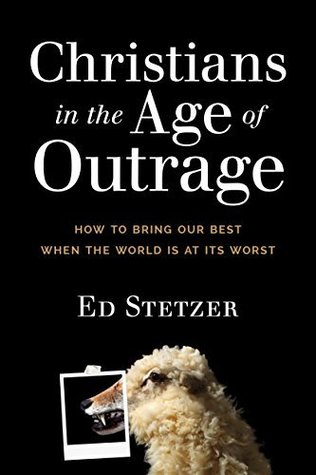More on this book
Kindle Notes & Highlights
by
Ed Stetzer
Read between
January 7 - January 16, 2019
“If you are what you love, and love is a habit, then discipleship is a rehabituation of your loves. This means that discipleship is more a matter of reformation than of acquiring information.”[16]
1. Resources to help Christians understand God and his Word.
Christopher Wright, Knowing Jesus through the Old Testament, and Jen Wilkin, None Like Him
2. Resources to help Christians in their fight against sin.
Timothy Keller, Counterfeit Gods
3. Resources to help readers engage in ministry, in both their churches and their communities.
Trillia Newbell, United: Captured by God’s Vision for Diversity
4. Resources to answer complex questions about life and morality.
Matthew Stanford, Grace for the Afflicted: A Clinical and Biblical Perspective on Mental Illness
5. Resources to help believers understand our world and evolving culture.
Alan Jacobs, How to Think: A Survival Guide for a World at Odds
Even as Christians proclaim a message of love, the unloving actions and words of Christians toward others contradict our witness.
When we encounter rejection or anger, we tend to use the “offensiveness of the gospel” as a shield for our unloving and callous response. But the offensiveness of the gospel does not give license for Christians to be offensive. When we respond to pushback from others with hostility, it is not the offensiveness of the gospel that damages our witness and reinforces negative stereotypes of Christians—it’s us!
In essence, we wrap the gospel in our offensive packaging and then decry our neighbors when they are less than enthusiastic about Jesus and his church.
For instance, some Christians post Bible verses professing the love of Christ, only to follow that with hostile if not derogatory insults against some political, cultural, or religious figure.
When claims to being joy filled are mixed in with disparaging comments about a politician, it strikes onlookers as oddly disjointed.
Christopher Wright perfectly captures the implications of the truth that all humans bear the image of God: This forms the basis of the radical equality of all human beings, regardless of gender, ethnicity, religion or any form of social, economic, or political status. . . . Christian mission must therefore treat all human beings with dignity, equality and respect. When we look at any other person, we do not see the label . . . but the image of God. We see someone created by God, addressed by God, accountable to
God, loved by God, valued and evaluated by God.[18]
Christians need to begin from the premise that all people are made in the image of God and thereby entitled to dignity.
We are neither blind to sin (in others or ourselves), nor do we set conditions on our love.
Calvin summed up this form of love like this: Love of neighbor is not dependent upon manner of men but looks to God. . . . The Lord commands all men without exception “to do good.” . . . Yet the great part of them are most unworthy if they be judged by their own merit. But here Scripture helps in the best way when it teaches that we are not to consider that men merit of themselves but to look upon the image of God in all men, to which we owe all h...
This highlight has been truncated due to consecutive passage length restrictions.
When we’re confronted with outrage, walking away is sometimes the right response, while at other times we have to be ready to engage. Confused? I bet. But Scripture holds this tension and therefore so do we. Proverbs 26:4-5 says, Answer not a fool according to his folly, lest you be like him yourself. Answer a fool according to his folly, lest he be wise in his own eyes.
But the freedom and liberty preached by the digital world can sometimes make it seem as if it is okay to subvert and disrespect the authorities God has placed in our lives. The danger is that this emphasis upon freedom can blind Christians to their responsibility to respect and honor those whom God has placed in authority over them. Just as Paul exhorts the Thessalonians to “appreciate those who diligently labor among you, and have charge over you in the Lord” (1 Thessalonians 5:12, NASB), Christians need to be sure their online behavior honors their leaders.
Just because we can say something doesn’t mean we should. There are ways of confronting abuses of power, and I am certainly not condoning a mindless obedience. But Christians need to understand that the best place for difficult conversations is usually not online.


